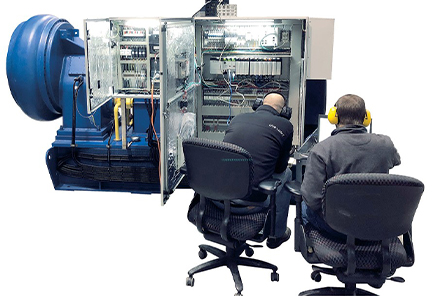
Field service management is a critical function for businesses that rely on technicians or service providers to deliver products or services at customer locations. The future of field service management lies in harnessing the power of automation solutions to streamline operations, improve efficiency, and enhance customer satisfaction. By leveraging automation technologies, businesses can optimize their field service processes, reduce costs, and stay ahead of the competition.
The Benefits of Automation Solutions in Field Service Management
Improved Efficiency
- Automation solutions can help businesses schedule appointments, assign tasks, and dispatch technicians more efficiently, reducing waiting times for customers.
- Automated workflows and processes eliminate manual errors and streamline communication between field technicians and back-office staff.
Cost Reduction
- By automating repetitive tasks and optimizing routes, businesses can lower fuel costs, reduce overtime expenses, and improve overall resource utilization.
- Automation solutions can also help businesses make data-driven decisions, leading to better allocation of resources and improved cost control.
The Role of Artificial Intelligence in Field Service Management
Optimized Scheduling
- AI-powered algorithms can analyze historical data, technician skill sets, and customer preferences to optimize scheduling and assign the right technician to each job.
- By predicting maintenance needs and proactively scheduling service appointments, businesses can prevent costly equipment breakdowns and minimize downtime.
Predictive Maintenance
- AI can analyze equipment performance data in real-time to predict when maintenance is needed, enabling businesses to schedule proactive service visits and avoid unexpected failures.
- Predictive maintenance can help businesses extend the lifespan of equipment, reduce repair costs, and enhance overall service quality.
Implementing Automation Solutions in Field Service Management
Evaluation and Planning
- Businesses should assess their current field service processes, identify pain points, and set clear objectives for implementing automation solutions.
- It is essential to involve key stakeholders, including field technicians, to ensure that the chosen automation tools meet their needs and improve their day-to-day operations.
Integration and Training
- Once the automation solutions are selected, businesses need to integrate them with existing systems and provide comprehensive training to employees to ensure a smooth transition.
- Training programs should cover both technical aspects of using the automation tools and the impact on workflows and processes.
The Future of Field Service Management
IoT and Remote Monitoring
- The Internet of Things (IoT) enables connected devices to communicate data in real-time, allowing businesses to monitor equipment remotely and diagnose issues proactively.
- Remote monitoring can help businesses reduce downtime, improve service quality, and offer predictive maintenance services to customers.
Augmented Reality for Field Technicians
- Augmented reality tools can provide field technicians with real-time guidance, hands-free instructions, and access to remote experts, improving their efficiency and reducing the need for on-site support.
- By overlaying digital information on the physical world, augmented reality can help technicians troubleshoot complex issues and complete tasks more effectively.